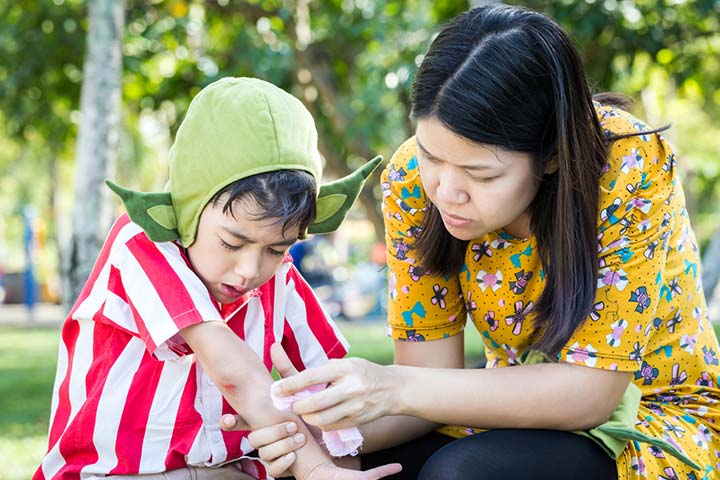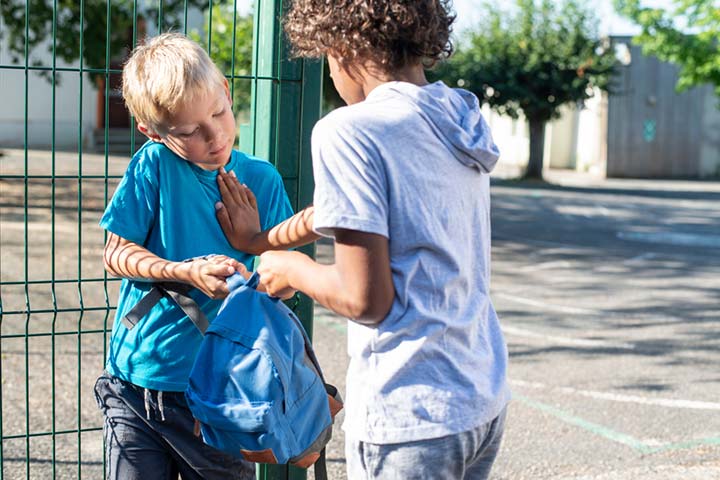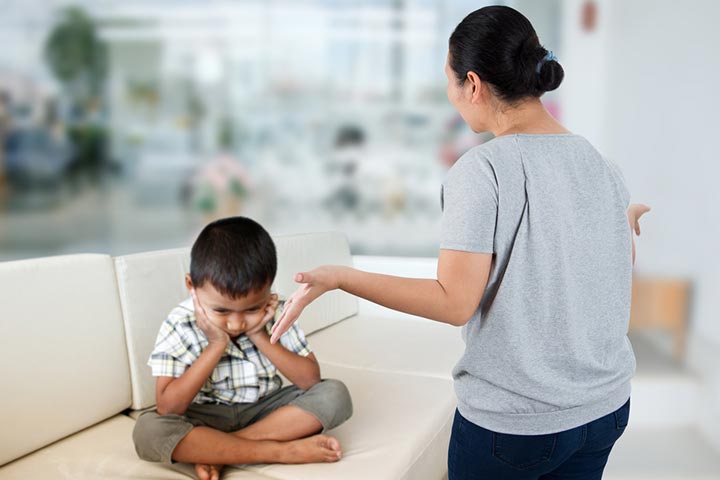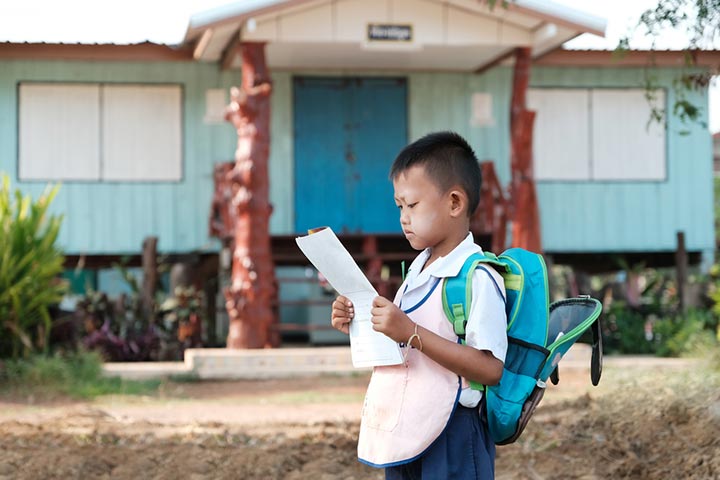
Image: Shutterstock
Every parent wants their kid to have a good friend circle, so they don’t need to worry about it when they are outside or at school with their classmates. Parents trust their children’s school management to maintain a good code of conduct, but sometimes things can go out of hand, and no one would be aware of ongoing bullying with your child. And when a child gets bullied, they will never say anything and keep on struggling daily unless you as a parent know how to figure out if your child isn’t complaining about it through their actions. Here in this article we’ll help you figure out different ways you can tell your child is going through a challenging phase at school and how you can help them with that. So without further ado, let’s get started!
1. If They Run Away From Answering About Their Unexplainable Bruises
Image: Shutterstock
Bullies are not limited to verbal abuse. They can get in physical tussles with your kid giving them bruises mostly on their knees or elbows (cause they’ll push them most of the time, making your kid fall) by outnumbering them. So, if you come across those minor yet unexplainable bruises, and your kid avoids answering, believe it or not, your kid has been through a lot.
2. If They Make Unnecessary Demands
Image: Shutterstock
There are many ways in which bullies get into your kids minds. It may be physical, verbal, interpersonal, or digital. For example, hyper-aggressive children may exert pressure on their classmates to start offering them more. Kids may begin to ask their parents for more things or money than they usually need as a result of such fear.
3. If They Behave Weirdly With You
Image: Shutterstock
If a child is made fun of every day in their class by a bully, it can be emotionally exhausting. They might start to show modifications in how they manage their emotions. If individuals experience oppression, they will make bad decisions. They begin venting their anger on their mom, dad, or siblings. This might be an effort to make them feel in command.
4. If They Limit Conversations With You
Image: Shutterstock
A kid going through so much each day will isolate themselves, without a doubt. They’ll be there with you watching TV or eating but thinking about what happened to them, not about the ongoing activities around them. So, try to initiate small talks to get their thoughts out.
5. If They Suddenly Turn Into An Introvert
Image: Shutterstock
You might find that your kid prefers to stay in their room rather than go out and meet people. It might be a sign of maturity or anxiety. They might want to stay away from troublesome classmates. They may not be able to quit school, so they decide to spend more time at home.
6. If You See Them Awake Late Night Regularly
Image: Shutterstock
An unexpected insomnia in your children or their tendency for nightmares may indicate that they are anxious about something at school. According to research, experiencing physical and mental harm may negatively affect a child’s ability to sleep. Try to watch your children as closely as you can at nighttime (1).
7. If You See A Lack Of Confidence In Them
Image: Shutterstock
Children who have experienced physical or emotional abuse begin to doubt their worth. They believe they are the target of these behaviors for essentially no cause. Their sense of self-worth consequently begins to decline. For example, they whisper or keep their heads down when speaking or walking. They may refuse to talk or avoid such circumstances when not immediately approached.
8. If They Come Back Home With Damaged Things
Image: Shutterstock
According to surveys, 29% of people victimized by their classmates also suffer physical harm (1). Keep an eye out for your child’s belongings. Check to see whether they have any clothing, jewelry, or other personal items missing or damaged. It can signify that other kids are hurting or stealing their belongings.
Ways To Prevent This Bullying
Apart from complaining to the school authorities, it’s your responsibility to bring your child’s overall mental status back on track. Although this won’t happen overnight, you can still use the following ways to make your child feel confident again.
1. Give Them A Pep Talk
Image: Shutterstock
The best way to get motivated is listening to someone who inspires you daily, and who else other than a parent would be for a child whose morale is hugely down. Tell them about your struggles and how to stand up for yourself and take action against the wrong doers. This way, your kid will feel more comfortable and confident when facing their situation.
2. Ask Them To Pick A Hobby
Image: Shutterstock
Hobbies are an excellent way to divert negative energy into positive ones with the right approach. If your kid indulges in something productive, they can eventually gain enough confidence to stand up for themselves.
3. Try To Spend More Time Together
Image: Shutterstock
Give them support by sharing stories with them, going on a shopping spree with them, or doing some other activity that provides you both enough time together to develop a stronger bond. Through this, you can teach your child important life lessons without making them obvious and uncomfortable.
Bullying affects personal development and haunts people for their entire life if not taken care of effectively. So let us know about your approach to discovering someone being bullied and how you would help them in the comment section below.























